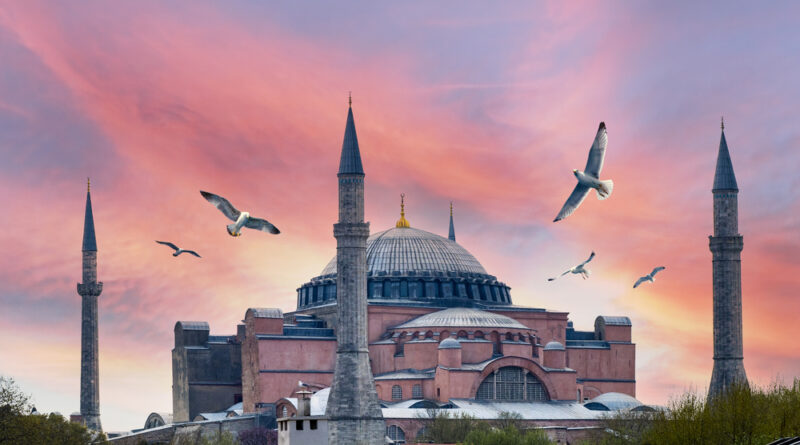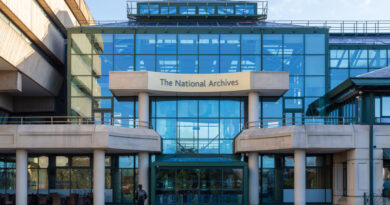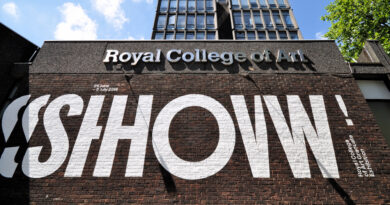27th Annual Oxford University Byzantine Society International Graduate Conference.
The 27th Annual Oxford University Byzantine Society International Graduate Conference is ‘Byzantium and its environment’.
The Oxford University Byzantine Society invites you to attend its 27th Annual International Graduate Conference, either in person or online via Zoom.
This annual event consistently represents the world’s largest postgraduate conference in Late Antique and Byzantine Studies, attracting speakers from around the world.
Conference Programme –
Saturday (March 1st, 2025)
11.00 a.m. – Opening Remarks (Lecture Theatre)
11.30-13.00 p.m. – Session 1: Panel 1a (Lecture Theatre); and Panel 1b (Rees Davies Room)
13.00-14.00 p.m. – Lunch Break (Common Room)
14.00-15.30 p.m. – Session 2: Panel 2a (Lecture Theatre); and Panel 2b (Rees Davies Room)
15.30-16.00 p.m. – Coffee and Tea Break (Common Room)
16.00-17.30 p.m. – Session 3: Panel 3a (Lecture Theatre) and Panel 3b (Rees Davies Room)
17.30-18.30 p.m. – Wine Reception (Common Room)
19.00 p.m. – Conference Dinner
Sunday (March 2nd, 2025)
11.30-12.30 p.m. – Session 4: Panel 4a (Lecture Theatre); and Panel 4b (Rees Davies Room)
12.30-13.30 p.m. – Lunch Break (Common Room)
13.30-14.30 p.m. – Session 5: Panel 5a (Lecture Theatre); and Panel 5b (Rees Davies Room)
14.30-15.00 p.m. – Closing Remarks (Lecture Theatre)
15.00-16.00 p.m. – Parting Tea Reception (Common Room)
Schedule of Papers
Session 1: Saturday, 11.30–13.00
Panel 1a: The Water Cycle (Chair – Duncan Antich)
‘Exploring Monastic Water Systems: A Preliminary Study from the Kyrenia Range’ – Mehmetcan Soyluoğlu (The Cyprus Institute)
‘Sacred Waters: Fish, Fishermen, and the Baptism of Christ in Cretan Churches’ – Nicolyna Enriquez (University of California, Los Angeles)
‘Mollusk Materiality: Maritime Encounters at the Euphrasian Basilica in Poreč, Croatia’ – Zoe Appleby (Case Western Reserve University)
Panel 1b: Nature in Verse and Liturgy (Chair – Tarah Rosendahl)
‘St. Demetrius and the Enduring Earthquake’ – John Elliott Clark (Kellogg College, University of Oxford)
‘Wolves, Waves and Thunderstorms: Nature and Suffering in Nikolaos Mouzalon’s poem’ – Kyriakos Costa (National and Kapodistrian University of Athens)
‘“Rise, oh Nile!”: Ritualization of the Flooding of the Nile in medieval Melkite Egyptian euchologia’ – Achraf Brahim (University of Vienna)
Session 2: Saturday, 14.00–15.30
Panel 2a: Transition – Climatic shifts from the 4th-9th centuries (Chair: Marcus Wells)
‘Seasonal Patterns in the Archaeological, Palaeoclimatological, and Historic Records of Hunnic Mobility within the Byzantine Empire in the Fourth and Fifth Centuries’ – Mel G. Smith (University of Cambridge)
‘Nobody Wants to be Here, and Nobody Wants to Leave: Climate and Resilience in the 6th Century’ – Andrew McNey (Reuben College, University of Oxford)
‘Non-Elite Earthquake Responses in Lechaion Basilica, Corinthia (6th to 9th c.CE)’ – James Razumoff (University of Virginia)
Panel 2b: The Literary climate (Chair: Gabriel Clisham)
‘Cassiodorus’ natural digressions and their role in Ostrogothic politics’ – Ethan Chilcott (Pembroke College, University of Oxford)
‘Fearful Heights, Helpful Thieves, and Wild Honey. Representations of Mountains and Mountain Peoples in Late Byzantine Epistolography’ – Guillaume Bidaut (Université Paris 1 Panthéon-Sorbonne)
‘Reconsidering the Bulgarian Revolt of 1040: Environmental Perspectives’ – Findlay Willis (Pembroke College, University of Oxford)
Session 3: Saturday, 16.00–17.30
Panel 3a: Paradise (Chair: Sophia Miller)
‘Ephrem’s Eternal Landscape: Natural Imagery in the Hymns on Paradise’ – Katherine Painter (Blackfriars Hall, University of Oxford)
‘Arboreal Analogues: Trees as Spiritual Participants in a North African Baptismal Font’ – Luke Hester (Case Western Reserve University)
‘Fruitful Trees, Lush Vegetation, and Unified Weather Conditions: Depicting Nature in Byzantine Art of Crete Under Venetian Rule’ – Polymnia Synodinou (University of Crete)
Panel 3b: Practicality (Chair: Alexander Johnston)
‘Illuminating the Byzantine Frontier: A Geospatial Study of Environmental Considerations in the Ninth Century Fire Beacon Network’ – Annalise Whalen (University of Central Florida)
‘The Impact of Natural and Environmental Factors on Defense Structures: The Walls of Bursa’ – Egemen Deniz (Bursa Uludağ University)
‘In the Making of the Water Heritage: Picturing the Valens Aqueduct in Early Modern Constantinople’ – Fatma Sarıkaya-Işık (Middle East Technical University)
Session 4: Sunday, 11.30–12.30
Panel 4a: Landuse and Landscape (Chair: Eleanore Debs)
‘Modeling Mobility in the Chora: Rural Christianity and Sacred Landscape in Late Antique Aphrodisias’ – Elizabeth R. Davis (Brown University)
‘Use of Marginal Land: The Expansion of Settlements and Use of the Environment in the Upper Western Galilee in Late Antiquity’ – Matthew Peters (Keble College, University of Oxford)
Panel 4b: The Late Antique Little Ice Age (Chair: Findlay Willis)
‘Examining the Late Antique Little Ice Age’s Impact on Negev Viticulture Through 19th Century European Analogues’ – Molly A. Stevens (Independent Scholar)
‘‘The Ister is foreign to you’: climate and warfare behind and beyond the Danube at the end of Late Antiquity’ – Carlo Alberto Rebottini (University of San Marino)
Session 5: Sunday, 13.30–14.30
Panel 5a: Nature and Art between two faiths (Chair: Michael Hughes)
‘Crosses in early Islam’ – Gabriel Fowden (Independent Scholar)
‘Mosaics as Micro-Cosmos: Nature and Identity in Christian and Islamic Mosaics of the Seventh-and Eighth-Century Levant’ – Madeleine Duperouzel (Hertford College, University of Oxford)
Panel 5b: Grapes and Bees (Chair: Ethan Chilcott)
‘Teeming the Divine: Art and Architecture of Sacred Spaces as Environmental Amplifications in 9th-10th century Cappadocia’ Maria Shevelkina (Stanford University)
‘Bees and Wasps in Byzantine Hagiography’ – Ayşenur Mulla-Topcan (University of Silesia in Katowice)




